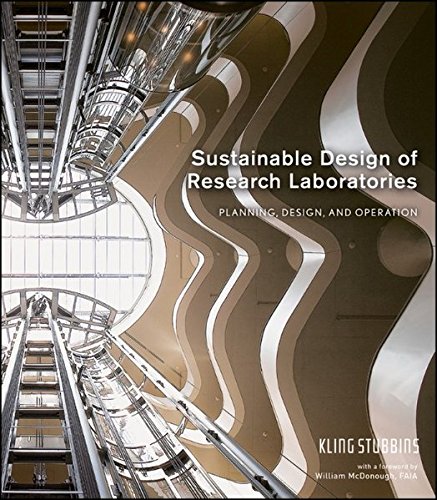

Most ebook files are in PDF format, so you can easily read them using various software such as Foxit Reader or directly on the Google Chrome browser.
Some ebook files are released by publishers in other formats such as .awz, .mobi, .epub, .fb2, etc. You may need to install specific software to read these formats on mobile/PC, such as Calibre.
Please read the tutorial at this link: https://ebookbell.com/faq
We offer FREE conversion to the popular formats you request; however, this may take some time. Therefore, right after payment, please email us, and we will try to provide the service as quickly as possible.
For some exceptional file formats or broken links (if any), please refrain from opening any disputes. Instead, email us first, and we will try to assist within a maximum of 6 hours.
EbookBell Team

4.1
30 reviewsArchitecture, Sustainable Design
A comprehensive book on the sustainable design of research laboratories
Today's research laboratories are complex and difficult building types to design, and making them sustainable adds more obstacles. Written by members of the well-known firm KlingStubbins, under the guidance of its Directors of Laboratory Planning, Engineering, and Sustainability, Sustainable Design of Research Laboratories represents a multidisciplinary approach to addressing these challenges.
With the needs of architects, engineers, construction professionals, and facility owners in mind, this book provides a road map for sustainable planning, design, construction, and operations. The book is valuable both to experienced laboratory designers seeking guidance on sustainable strategies, as well as professionals versed in sustainable design who want insight into laboratory applications. With content rich in guidance on performance strategies, even the most technically oriented reader will find valuable lessons inside. This book:
Focuses on the links between best sustainable practices and the specific needs of research laboratories
Provides a number of case studies of the best contemporary sustainably designed labs, with a focus on architecture and engineering
Explores the challenges in applying rating systems, including LEED, to laboratory buildings
Examines unique considerations of sustainable approaches in leased and renovated laboratories
Includes contributions by experts on approaches to integrated design, site design, programming, and commissioning
This important book shows how theoretical ideas can be applied to real-life laboratory projects to create healthier and more efficient research environments